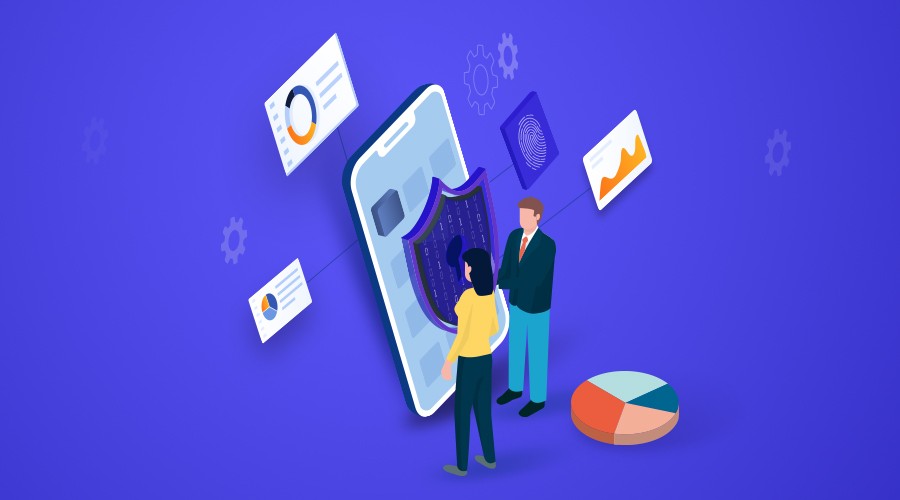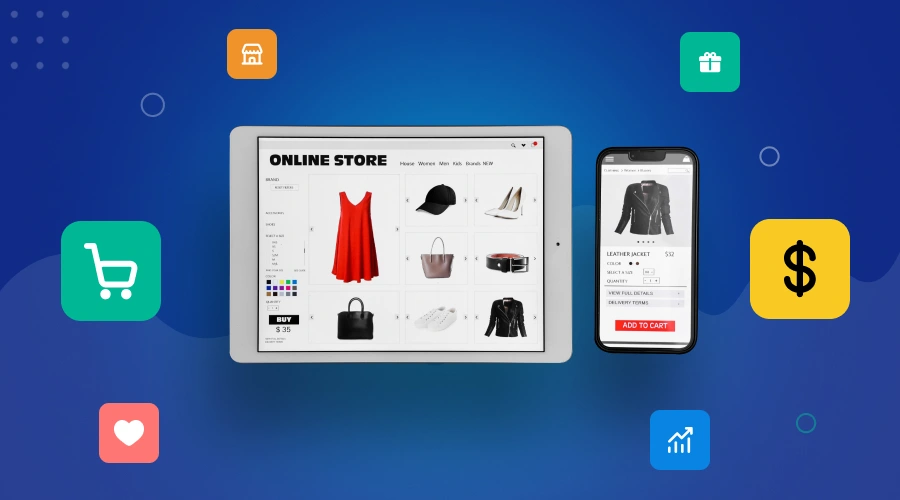Today, mobile applications have become an integral part of our lives as they offer a wide range of services with incredible convenience and seamless functionality. As per statistics provided by BuildFire, there are about 1.96 million and 2.87 million apps that are available for download on the Apple and Google Play stores, respectively. Given the widespread acceptance of mobile apps, there has been a spurt in mobile application development across the world.
However, the increasing reliance on mobile apps has also raised concerns about security and privacy. With cyber threats becoming more frequent and sophisticated, it is crucial for mobile app development services and users to prioritize mobile app security. By implementing best practices and strategies, we can safeguard sensitive data and protect against potential breaches. The blog discusses some of the essential measures any mobile app development company in USA or elsewhere should take to ensure mobile app security.
Best Practices and Strategies for Mobile App Security
The ubiquity of smartphones has given a boost to the use of mobile apps. Arguably every segment of our lives has begun to be driven by apps. Whether it is about attending online meetings or classes, booking tickets, buying groceries, watching movies, or playing games, there is no denying the role of mobile apps. However, the growing menace of cybercrime has brought about a renewed sense of urgency. All app developers ought to follow the below-mentioned practices and strategies to reduce risk and strengthen security.
Secure Coding Practices
The foundation of mobile app security lies in secure coding practices. Developers should follow industry-standard guidelines, such as those of the Open Web Application Security Project (OWASP), to address common vulnerabilities. The practices include using secure coding languages, validating inputs, implementing proper session management, and conducting rigorous testing for potential weaknesses.
Data Encryption
To protect sensitive user information in mobile apps, any mobile web development company should use data encryption. Implementing strong encryption algorithms, such as AES (Advanced Encryption Standard), ensures that data transmitted between the mobile app and servers remains secure. Additionally, encryption should be applied to stored data within the app and any offline databases to prevent unauthorized access in the event of device theft or loss.
User Authentication and Authorization
Robust authentication mechanisms are crucial to preventing unauthorized access to mobile apps. Utilizing secure authentication protocols like OAuth or multi-factor authentication (MFA) adds an extra layer of security. Developers should also enforce strong password policies, implement session timeouts, and regularly update authentication tokens to mitigate the risk of account compromise.
Secure Network Communication
Utilizing HTTPS/TLS protocols with valid certificates ensures encrypted communication channels and protects against man-in-the-middle attacks. Developers or mobile app development services should also implement certificate pinning to validate the server’s authenticity, reducing the risk of data interception.
Regular Security Updates
Ensuring the security of mobile apps is an ongoing process. Regular security updates, such as patches and bug fixes, are essential to address newly discovered vulnerabilities. Developers should monitor security advisories, stay up-to-date with the latest security practices, and promptly release updates to users to ensure the app remains secure.
Secure Offline Storage
Mobile apps frequently store data locally, including cache, preferences, and user-generated content. It is crucial to employ secure storage mechanisms, such as the Android Keystore or iOS Keychain, to protect sensitive information from unauthorized access. Additionally, sensitive data should never be stored in plain text or easily reversible formats.
Code Obfuscation
Code obfuscation techniques can make it harder for attackers to reverse engineer the app’s code and discover vulnerabilities. By obfuscating the code, developers can obscure the logic, making it more challenging for malicious actors to exploit vulnerabilities or extract sensitive information.
User Privacy
Respecting user privacy is paramount to building trust. Mobile apps should have a transparent privacy policy, clearly stating the data collected, how it is used, and with whom it is shared. Collecting only the necessary data and obtaining user consent before accessing sensitive information are critical steps in safeguarding user privacy.
Penetration Testing and Security Audits
Regularly conducting penetration testing and security audits can help identify vulnerabilities and weaknesses in mobile apps. These tests simulate real-world attack scenarios, enabling developers or mobile app services to proactively address potential security gaps. Third-party security audits can provide an unbiased assessment of the app’s security posture.
Educating Users
Users play a significant role in mobile app security. Educating them about potential risks, such as downloading apps from trusted sources, being cautious of suspicious links, and practicing good password hygiene, can help prevent security incidents. Developers can also integrate security awareness features within the app to guide users on safe practices.
Conclusion
Mobile app security should be a top priority for developers and users alike. Adhering to the above-mentioned practices and strategies can help reduce security risks and ensure a safer mobile app ecosystem. Should you want to build a secure mobile app and mitigate risks for your business, call 888-833-9088, send an email to info@knovial.com, or visit www.knovial.com to give your requirements and get a quote.







